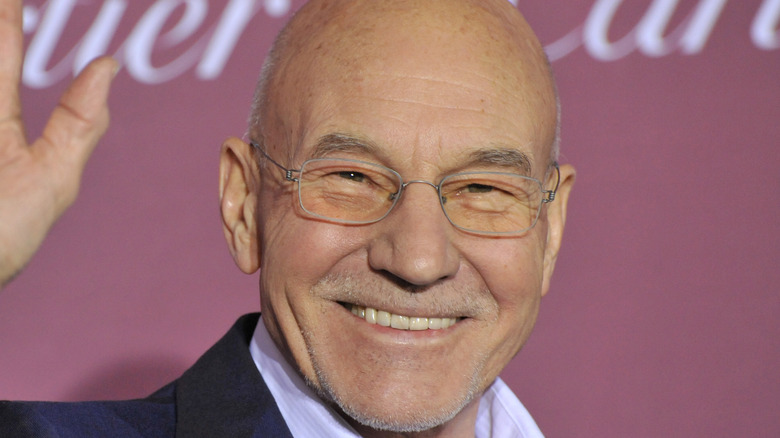The Real Reason BBC Banned A First Season Episode Of Star Trek: The Next Generation
"Star Trek: The Next Generation" is a landmark series in one of the most legendary and influential franchises in the world, sci-fi or otherwise. The globally popular show has aired in countries around the world for decades since its 1987 premiere and is still beloved today by Star Trek fans and television junkies alike. It seems crazy to think that any major network would ever ban an episode of such a popular show, but the BBC did so no less than three times.
The first TNG ban came from the first-season episode "Conspiracy," where Star Fleet Inspector Dexter Remmick is graphically killed with a phaser (via Fact Retriever). The gory aftermath of the murder was deemed too much for television, and the BBC banned the episode from circulation on their network. Other bans were rooted more in politics than violence. For example, an off-hand remark from Data that Ireland was able to split from the U.K. entirely saw the Season 3 episode "High Ground" get the ax.
BBC has a history of banning Star Trek episodes
The BBC has a bit of a track record when it comes to censoring "Star Trek." Beyond the two aforementioned "Next Generation" episodes that were cut, a Season 2 episode with "ritualistic 'pain sticks'" was also deemed too violent for British television screens (via Den of Geek). Elsewhere, four episodes of the original series were banned, including two torture-heavy episodes, one strangely tame story involving lost children, and perhaps most infamously, "Plato's Stepchildren." The latter notably featured television's first interracial kiss between Captain Kirk and Lieutenant Uhura.
"Deep Space 9" had 45 seconds of an extended battle sequence cut, but otherwise, the network's attitude toward censorship had softened, even if the content of each successive "Star Trek" show pushed boundaries a little further. It's a sign of how society's acceptance of heavier topics in media has changed, and how the various Starfleet crews to grace television were never shy to discuss and display topics that other shows were afraid of.

